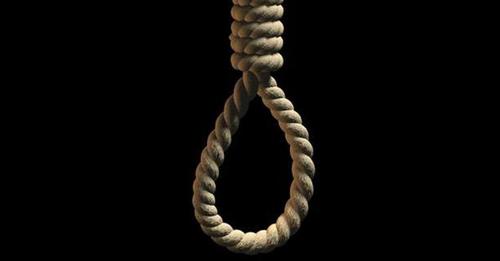Security & Crime
Men in Africa are more prone to committing suicide compared to women, according to Africa CDC Advisor

The high rate of male suicide on the continent has been attributed to cultural preconceptions that keep African men from seeking emotional and mental health support, according to Dr. Naeem Dalal, Advisor, Non-communicable Diseases, Injuries, and Mental Health for Africa, CDC.
On the fringes of a parallel session on youth mental health in Africa at the International Conference on Public Health in Africa (CPHIA) on Tuesday, Dalal gave a speech in Lusaka, Zambia.
He claims that data clearly demonstrate that more men in Africa commit suicide than any other continent.
The Africa Centres for Disease Control and Prevention (Africa CDC) organises the annual CPHIA, which will be hosted by the Government of Zambia in 2023.
“Breaking Barriers: Repositioning Africa in the Global Health Architecture” is the subject of the CPHIA2023.
The yearly celebration is scheduled for November 27–30.
Currently serving as the National Mental Health focal point and specialist for the Zambia National Public Health Institute, Dalal is a psychiatrist from Lusaka, Zambia, with expertise in youth mental health.
He declared: “Men commit suicide at a higher rate than women.
“There are two things we need to be aware of while discussing suicide. There are two types of suicide: passive and active.
“Suicide by suicide is known as active suicide.
When you consider killing yourself or hurting yourself but choose not to act on those ideas, it’s known as passive suicide. That’s passive suicide, then.
“More men commit suicide in Africa than any other continent when it comes to particular data for men.
Hence, men commit suicide at a higher rate than women. Men account for 50% of the deaths, which is understandable given that men use more lethal means of passing away.
Dalal outlined a few factors that lead males to consider suicide rather than getting assistance.
It’s also critical to realise that, because to the supporting society prevalent in Africa, males are unlikely to seek assistance for problems pertaining to their mental health.
“In communities, men are expected to be the responsible breadwinners. Being vulnerable in that way is not something that our communities on the African continent as a whole accept.
Not only is it a stereotype, but it is also true that boys are raised to be strong and responsible, and men are also taught not to ask for assistance.
Therefore, even in cases where mental health services are available, men’s access to them is hampered by this.
“These are the difficulties we are dealing with,” he said to NAN.
Dalal put forth a few suggestions meant to lower the suicide rate on the continent.
Nonetheless, the non-communicable illnesses, injuries, and mental health strategies are the present focus of the Africa CDC’s solutions and implementations.
“They have flagship projects that examine men’s health as well as community mental health advocacy.
However, fellowships in mental health are also about to launch, with the goal of empowering healthcare professionals to pursue mental health as a career.
This is due to the fact that healthcare professionals in Africa are reluctant to specialise on mental health.
The implementations that we are working on are these.
Since the age range of 15 to 29 accounts for the third highest rate of suicide deaths, we are also encouraging increased advocacy among the younger generation.
Dalal claims that there is still a lot of advocacy being done, particularly by the Africa CDC via the African Union.
“We are also in favour of changing policies so that mental health is relevant to the times we live in,” he stated.
He applauded Nigeria for having recently passed a Mental Health Bill.
